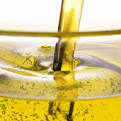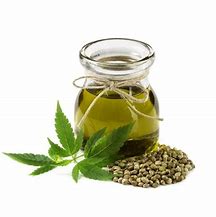Sea Buckthorn? Can Sea Buckthorn Skin Creams Make a Difference?
 v
v






Sea Buckthorn? Can Sea Buckthorn Skin Creams Make a Difference?
Sea Buckthorn
Sea buckthorn (Hipphophae rhamnoides) is a medicinal plant long used in herbal medicine. In addition, people sometimes use sea buckthorn fruit in sweet treats, including jams, pies, and drinks.
Available in supplement form, sea buckthorn extract contains various essential fatty acids and antioxidants (including vitamin C, vitamin E, and anthocyanins).1
As a result, proponents claim that sea buckthorn offers a wide range of health benefits.
This article explains sea buckthorn's uses, dosages, and side effects.
What Is Sea Buckthorn Used For?
In herbal medicine, sea buckthorn has long been used to stimulate the digestive system, enhance heart and liver health, and treat skin disorders. Today, sea buckthorn is touted as a natural remedy for the following health problems:
- Arthritis
- Diabetes
- Eczema
- High blood pressure
- High cholesterol
- Inflammation
- Rosacea
In recent years, sea buckthorn oil has gained popularity as an ingredient in skin-care products. When applied topically, sea buckthorn oil is thought to have many benefits, including:1
- Moisturizing the skin
- Easing irritation
- Treating acne
- Healing aging-related damage
There is currently a lack of clinical trials testing the effects of sea buckthorn. However, preliminary research suggests that sea buckthorn may offer several health benefits.
Eczema
Older studies suggest that sea buckthorn supplements may help treat atopic dermatitis (eczema). For example, a 1999 study in the Journal of Nutritional Biochemistry tested sea buckthorn pulp oil on 49 people with atopic dermatitis.2 Researchers observed significant improvement among those who took supplements every day for four months.
However, more recent research suggests that supplements like sea buckthorn provide no benefit.
Wound Healing
Animal-based research suggests that sea buckthorn may promote wound healing when applied topically. For example, in a 2009 study in Food and Chemical Toxicology, scientists discovered that topically applied sea buckthorn seed oil helped speed up the healing of burn wounds in rats.
Diabetes
In a small 2010 study in the European Journal of Clinical Nutrition, researchers found that sea buckthorn may help keep blood sugar in check and protect against type 2 diabetes.5 In an experiment involving 10 healthy, normal-weight volunteers, the study's authors discovered that adding sea buckthorn berries to meals helped prevent a post-meal spike in blood sugar.
Recap
People use sea buckthorn to treat chronic and systemic conditions, including diabetes, eczema, arthritis, and high blood pressure. In addition, the supplement is added to some skin products as a moisturizer and acne treatment. However, while proponents claim the herb holds many health benefits, very little evidence supports the claims.
Is Sea Buckthorn Safe?
Sea buckthorn fruit is likely safe when consumed in amounts typically found in food. The fruit is also likely safe when taken by mouth for medicinal purposes.
However, little is known about the safety of consuming sea buckthorn extract. Therefore, it's essential to consult a healthcare provider if you're considering the use of sea buckthorn supplements.
Be especially careful to get medical advice before using sea buckthorn in children. In addition, talk to a healthcare provider if you have health conditions, including:
- Low blood pressure
- Bleeding disorders
- Are about to undergo surgery
- Are taking medications
- Are pregnant or breastfeeding
It's important to remember that supplements haven't been tested for safety and dietary supplements are largely unregulated. In some cases, the product may deliver doses that differ from the specified amount for each herb. In other cases, the product may be contaminated with other substances such as metals.
Recap
When consumed in food, sea buckthorn is likely safe. However, you should talk to a healthcare provider before taking sea buckthorn, especially if you have health conditions, take medications, or are pregnant or breastfeeding. Never give sea buckthorn to children without first consulting with a healthcare provider.
What to Look For
Sea buckthorn supplements are available online and in some natural-food stores. In addition, you can find skin-care products containing sea buckthorn in many specialty beauty shops.
Sea buckthorn comes in a variety of preparations, including:
- An oil
- Capsule
- Capsule combined with other herbal remedies
Read the Label
The National Institutes of Health advises all supplement users to examine Supplement Facts label on any product that you consider using. This label contains vital information including the amount of active ingredients per serving, and whether other ingredients have been added.
Look for a Seal of Approval
In addition, it is helpful to look for a third-party seal of approval by an independent organization. Groups like the U.S. Pharmacopeia, ConsumerLab.com, and NSF International help verify the product, including ensuring the following:
- The product was manufactured correctly.
- It contains the ingredients listed on the label.
- It does not have harmful levels of contaminants.
Remember, though, a seal of approval from one of these organizations does not guarantee the product's safety or effectiveness.
Given the lack of supporting research, it's too soon to recommend sea buckthorn for any health condition. It's important to note that self-treating a condition with sea buckthorn and avoiding or delaying standard care may have serious health consequences.
Recap
Supplements are unregulated, so be sure to read labels and look for a seal of approval that helps ensure an independent third party verified the product.
Summary
Sea buckthorn is an herbal supplement that people sometimes use for treating some chronic health and skin conditions. However, there is very little evidence that the herb is beneficial.
If you consider supplementing with sea buckthorn, be sure to check with a healthcare provider first, especially if you have health conditions or take medications. Supplements are unregulated, so read labels carefully and look for third-party seals of approval.
Reference: Verywell Health.
Articles-Most Read
- Home
- Contact Us
- Coconut Oil-2
- Absorption Ratings for Carrier Oils
- Cold Pressing Method
- What are Essential Fatty Acids
- Cherry Kernel Oil
- Fixed Oils and Skin Penetration
- Hempseed Oil
- Almond Oil
- Cocoa butter
- Camelina Oil
- Antibacterial Effects Of Carrier Oil
- Coconut Oil
- Lime Blossom Oil (macerated)
- Carrot Oil, Wild Carrot Oil (macerated)
- Apricot Kernel Oil
- Kukui Nut Oil
- Pumkin Seed Oil - Cucurbita maxima, C. pepo
- Jojoba Wax
- Passion Flower OIl (Macerated)
- Hydrocotyle Oil (macerated)
- Palm Kernel Oil
- Rapeseed Oil - Carrier Oil
- Nutrients
Who's On Line
We have 29 guests and no members online
Articles-Latest
- How to Make Homemade Olive Oil: A Step-by-Step Guide
- 20 Evidence-Based Aloe Vera Oil Benefits For Skin, Hair & Health
- Peanut oil - Cold pressed - Are There Health Benefits? How To Make
- What Are the Health Benefits of Black Seed Oil?
- Comfrey oil Infused
- Chamomile Flowers Infused Oil
- Calendula Flowers Infused Oil
- Arnica Flowers Infused Oil
- How To Make Herb-Infused Oils
- DIY avocado oil for healthy skin
- How To Make Coconut Oil
- 8 Benefits of Mustard Oil, Plus How to Use It
- SHOREA STENOPTERA SEED BUTTER
- Shea Butter- 7 Amazing Benefits Of Shea Butter
- Monoi Oil For Hair & Skin
- Mango Seed Oil
- Cohune Oil Is The Next Big Thing
- Brazil Nut OIl
- 7 Impressive Benefits Of Allspice
- Camelina Oil Benefits, Uses, and Side Effects




